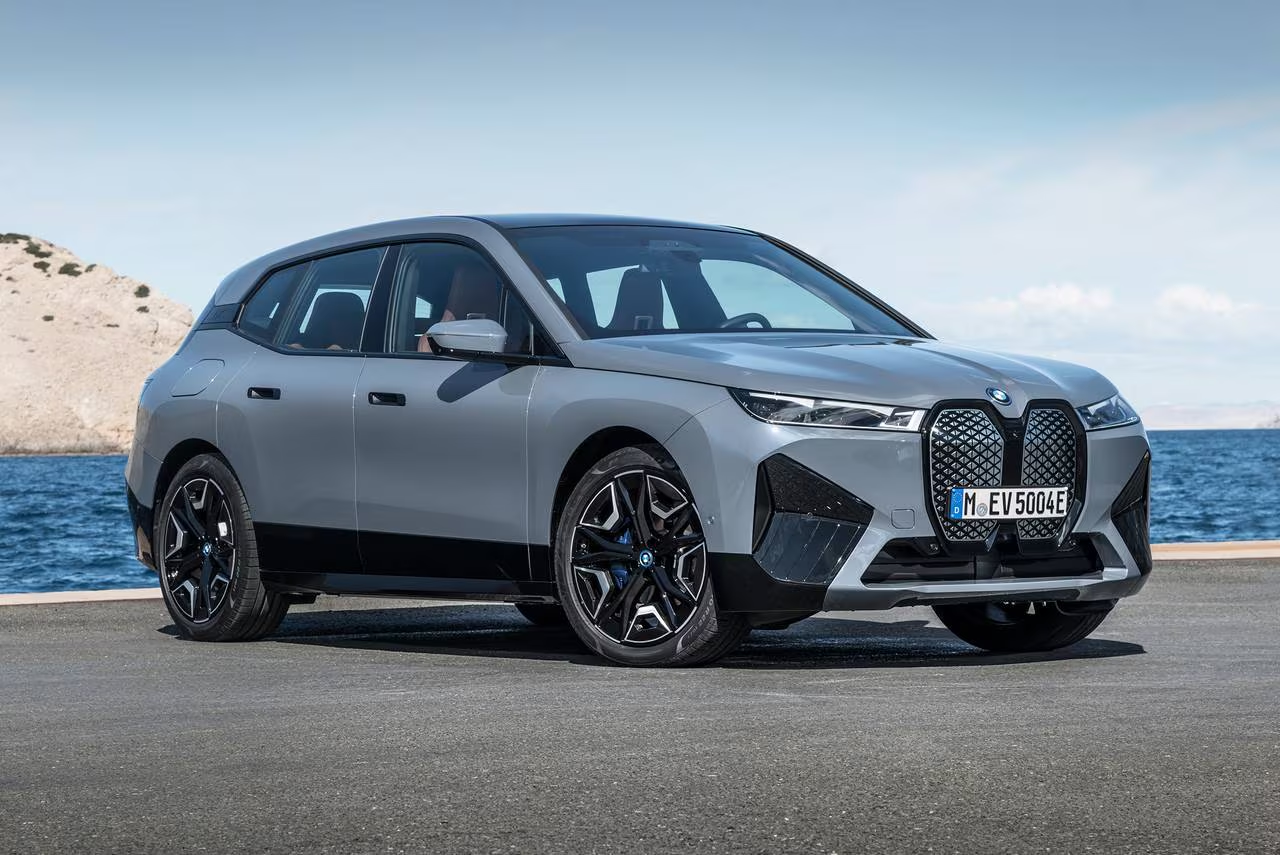Hey there! If you’re wondering whether the BMW 320i is a solid pick for your daily grind, you’ve landed in the right spot. We’re about to dive deep into what makes this luxury sedan tick—or not—when it comes to reliability for everyday use. From zipping through traffic to saving some cash at the pump, let’s see how this car holds up. Ready? Let’s roll!
Introduction
Picture this: a sleek, stylish sedan that turns heads but also gets you to work on time—every time. That’s the BMW 320i, the entry-level star of the legendary 3 Series lineup. It’s got that premium vibe without breaking the bank, but here’s the million-dollar question: Can you count on it as your daily driver? For stuff like commuting, grocery runs, or even the odd weekend getaway, reliability isn’t just nice to have—it’s a must.
In this guide, we’re peeling back the hood on the BMW 320i’s reliability. We’ll mix expert ratings, real owner stories, and some practical know-how to give you the full scoop. Big names like J.D. Power, Consumer Reports, and even chatter from BMW owner forums will back us up. So, whether you’re a car geek or just shopping around, stick with us to see if the 320i’s got what it takes.
Performance and Suitability for Daily Driving
Engine and Powertrain
Under the hood, the BMW 320i rocks a 2.0-liter turbocharged inline-four engine, pumping out 180 to 184 horsepower depending on the year. Pair that with 255 pound-feet of torque, and you’ve got a peppy little beast. But what’s it like in the real world? Think quick acceleration when you’re merging onto the highway or weaving through a busy city street. That turbo engine and 8-speed automatic transmission make it smooth and responsive—perfect for those “oh no, I’m late” moments.
Ever tackled a mountain road or needed to pass someone in a pinch? The rear-wheel drive setup keeps things fun yet manageable, giving you absolute control behind the steering wheel. It’s not just about power output; it’s about how this car feels alive without being over the top for daily use.
Fuel Economy
Let’s talk fuel—because who doesn’t want to stretch their dollar at the pump? The 320i delivers solid fuel efficiency, clocking in at about 6.3 to 8.5 L/100km (that’s 27 to 36 MPG) depending on how and where you drive. With a 59L fuel tank, you’re not stopping for gas every other day, which is a win for any commuter. Plus, tricks like regenerative braking help squeeze out every last drop.
For the average driver racking up 20-25k miles a year, that fuel economy can mean real savings. According to the EPA, the 2023 model hits 30 MPG combined—pretty sweet for a luxury ride, right? It’s practical without skimping on the premium feel. Want to know more, visit our website…
Handling and Comfort
How does it ride, though? The base model comes with a fixed-rate suspension that’s firm but fair—great for dodging potholes or cruising public roads. Want a smoother trip? The optional adaptive suspension adjusts on the fly, soaking up bumps for a more comfortable driving experience. Either way, you’re getting a pleasant ride that doesn’t leave you rattled after a long day.
The steering wheel is your best friend here—sharp, precise, and easy to handle whether you’re parking in tight spots or braving a rainy highway. Add in standard features like automatic dual-zone climate control and cruise control, and it’s clear BMW built this for everyday folks, not just ambitious drivers. Oh, and safety? It’s got a five-star safety rating from the NHTSA, loaded with active safety tech like adaptive cruise control and auto emergency braking. Peace of mind? Check.
Reliability Ratings and Expert Insights
Overall Reliability Scores
Alright, let’s get to the heart of it: How reliable is the BMW 320i really? The experts have spoken, and the news is pretty good. J.D. Power gave the 2020 320i an 81 out of 100 for dependability—above average in their books. Consumer Reports also ranks the 3 Series high among luxury sedans, praising its real-world reliability. What Car? in the UK echoes this, giving it a solid 4 out of 5 based on owner surveys.
What does that mean for you? Fewer headaches, fewer trips to the shop—if you keep up with regular maintenance, that is. These scores aren’t just numbers; they’re a sign the 320i can handle the daily grind without throwing tantrums.
Comparison with Competitors
So, how does it stack up against the big dogs like the Mercedes-Benz C-Class, Audi A4, and Lexus IS? The 320i’s reliability is right up there with the A4, though Car and Driver notes it edges out the Audi in fuel efficiency and driving fun. The C-Class? Flashy, sure, but its repair costs can sting more, per RepairPal data. Then there’s the Lexus IS—practically bulletproof, but it’s less thrilling on the road.
The 320i shines by balancing dependability with that BMW driving vibe. It’s not perfect—electronics can be finicky, say some owners—but it’s a strong player in the luxury sedan game.
Longevity Potential
Can this car go the distance? With proper care, absolutely. Many 320i owners report hitting 200,000 miles or more, especially with preventative maintenance like timely oil changes and transmission fluid checks. Forums like BimmerFest are full of stories of these cars lasting over a decade when treated right.
But here’s the catch: neglect it—skip maintenance or lean into aggressive driving—and you might see worn suspension bushings or other annoying issues creep up. Maintenance costs can climb (think $71,940 to $82,720 over its lifetime, per some estimates), but that’s par for the luxury course. Keep it pampered, and this sedan’s got serious staying power.
Common Issues and Maintenance Considerations

Frequent Mechanical Problems
No car’s perfect, right? With the BMW 320i, some stuff pops up more than you’d like. Take the cooling system—radiator leaks and water pump failures are pretty common. Imagine your daily driver overheating on the way to work—yikes, that’s a mood killer! If that water pump goes kaput, you’re stuck, and it’s not cheap to fix. Then there’s the steering wheel giving you the shakes or the suspension wearing out. Ever felt those annoying vibrations on a mountain road? That’s worn suspension bushings talking, and it can make your comfy ride feel bumpy. Owners on forums like BimmerFest mention these issues a lot, but here’s the trick: regular maintenance can catch them early. Check your coolant and listen for weird noises—don’t let lack of maintenance turn small problems into big headaches.
Engine-Specific Concerns
Let’s peek into the engine bay. Older 320i models (pre-2016) rock the N20 engine—a 2.0-liter turbocharged inline-four with some quirks. Timing chain issues are a biggie; if it stretches or snaps, your engine’s toast. Oil leaks can sneak up too, hurting optimal engine performance. But switch to 2016 and later, and you get the B48 engine—same 2.0-liter inline four-cylinder vibe but tougher. Fewer timing chain woes, better fuel efficiency, though some folks gripe about turbo engine hiccups or electronic glitches. Wondering about BMW 320i reliability here? It’s solid if you keep up with preventative maintenance—think oil changes every 5k miles or so. A 2017 Car and Driver review praised the B48’s smoothness, so I’d say it’s a win for daily commuters.
Maintenance Costs
Owning a BMW 320i isn’t just about that sweet rear-wheel drive feel—it’s about the wallet too. Routine stuff like oil changes runs $150-$200, brake pads hit $300-$400 per axle, and those 18-inch alloy wheels? New tires could cost you $600 easy. Repairs? According to RepairPal, the 3 Series averages $773 a year—way more than a Honda Civic’s $368. Common fixes like a water pump or coil packs can sting, especially with luxury models. But here’s my take: you’re paying for an enjoyable driving experience, not just a base model ride. Skip maintenance costs, and you’ll regret it—think of it like skipping gym days; it catches up fast.
Parts and Service Availability
Need a fix? BMW service centers are clutch in cities, but if you’re out in the sticks, good luck finding one nearby. Genuine parts—like a $500 water pump—keep your 320i humming, but they’re pricey. Labor’s no picnic either; dealerships charge $150-$200 an hour, per Kelley Blue Book. That’s steep, but it’s worth it for a comfortable driving experience and resale value. Aftermarket parts? Cheaper, sure, but I’d stick with the real deal for BMW 320i reliability. Got a knack for DIY? Small jobs like swapping an auxiliary input might save cash, but big stuff needs pros.
User Experiences and Owner Feedback
Positive Feedback
Owners love the 320i when it’s treated right. The driving dynamics? Unreal—rear-wheel drive and a turbo engine make every public road feel like a playground. Comfort’s on point too, with adjustable lumbar seats and automatic dual-zone climate control. One BimmerFest user bragged about 150k miles with just regular maintenance—talk about a trouble-free daily driver! The 8-speed automatic transmission shifts smooth, and fuel economy’s decent at 25-30 MPG, per Edmunds. For ambitious drivers who want luxury without crazy fuel consumption, this car’s a gem.
Negative Feedback
Not all feedback’s rosy. Some owners hate the 12.3-inch touchscreen multimedia system—Android Auto drops out, and it’s maddening when you’re cruising with tunes. Suspension rattles bug others, turning a smooth ride into a noisy mess. And those repair bills? A Reddit r/BMW post cried over a $1,200 coil pack fix. Ouch! These annoying issues don’t hit everyone, but they’re real. Skip preventative maintenance, and you might join the complaint club—prompt attention keeps these gripes at bay.
Real-World Reliability
Can the 320i go the distance? You bet! High-mileage champs on BimmerFest hit 200k miles—one 2016 owner logs 30k miles yearly and swears it’s rock solid. Daily use matters, though. Short trips wear the engine harder than long commutes—think 20-25k miles of stop-and-go versus highway hauls. Consumer Reports says well-maintained 320is shine, but neglect it, and you’re begging for potential issues. My advice? Mix up your driving, keep that transmission fluid fresh, and enjoy the ride.
Model Year Considerations
Best Years to Buy
Shopping used? Go for 2016-2018. These post-facelift (LCI) models swapped the N20 for the B48 engine—fewer problems, more power (255 pound-feet of torque!). Owners see less cooling system drama, and advanced technology like the lighting package adds flair. Edmunds calls these years reliable and value-packed, perfect for a pleasant driving experience. I’d snag a 2017 with the Assistance Package—safety equipment and style in one? Yes, please!
Years to Avoid
Early F30s—2012-2014—are trickier. The N20 engine’s timing chain and cooling system woes pop up more, plus recalls for fuel pumps hit hard. Consumer Reports flagged these for higher complaints, and forums agree: maintenance costs spike here. Not a total dealbreaker, but why risk it when newer models exist? Check service records if you’re tempted—don’t roll the dice on BMW 320i reliability with these.
Impact of Updates
BMW stepped up in 2016. The B48 engine cut common issues, boosting fuel efficiency to 35 MPG highway (per Car and Driver). Better electronics mean fewer infotainment touchscreen tantrums, and adaptive suspension tweaks smooth out the ride. It’s like BMW heard us and delivered a more reliable daily driver. Post-2016 models feel refined—less aggressive driving stress, more chill vibes. That’s the upgrade we all crave, right?
Cost of Ownership

Depreciation
So, how does the BMW 320i hold its value compared to other luxury sedans? Pretty darn well, actually! Luxury cars are notorious for shedding value faster than a shedding husky, but the 320i bucks the trend a bit. According to Kelley Blue Book, a 2016 320i retains about 40% of its original value after five years—say, $16,000 on a $40,000 base model. Stack that against a Mercedes-Benz C-Class, which might hover around 35% (Edmunds data), or an Audi A4 at 38%, and the 320i’s rear-wheel drive charm gives it a slight edge.
But here’s the catch—what keeps that resale value humming? Condition, mileage, and market demand are the big players. A 320i with 18k miles, pristine 18-inch alloy wheels, and a spotless service history? That’s gold. Compare it to one with 30k miles, uneven tire wear, and a lack of maintenance, and you’re losing thousands. Ever wonder why some used cars feel like steals while others scream “money pit”? It’s all in the care—or neglect—behind the steering wheel.
Total Cost Over Time
Let’s talk long-term—because owning a 320i isn’t just about the $71,940 sticker price (or $82,720 loaded up). Over five years, with 20-25k miles driven, here’s the breakdown:
- Fuel: At 30 MPG combined (EPA), you’ll spend $1,800-$2,200 yearly with a 15k-mile habit. That 59L fuel tank helps stretch it.
- Maintenance: Oil changes, brake pads, and wheel alignment? Budget $900-$1,200 annually. Skip preventative maintenance, and you’re begging for trouble.
- Repairs: Common issues like worn suspension bushings or coil packs can sting—$600-$1,800 a pop. Plan for one or two surprises.
- Depreciation: That 60% drop we mentioned? On a $40k car, that’s $24k gone.
Total? Roughly $25k-$30k over five years, plus the purchase. Steep, huh? Budgeting tip: Sock away $250 a month for maintenance costs and repairs—those 18-inch light alloy wheels don’t fix themselves. And if you’re jittery about the engine bay acting up, an extended warranty’s your safety net.
Alternatives to Consider
Other BMW Models
Tempted to upgrade within the 3 Series? The 328i and 330i beckon with more oomph. The 328i’s 240-horsepower turbo engine (pre-2016 N20) hits 0-60 in 5.7 seconds—faster than the 320i’s 7.1 (Car and Driver). The 330i, with 255 pound-feet of torque and an 8-speed automatic transmission, shaves it to 5.5. Sweet for mountain road jaunts! But reliability? The 328i’s had timing chain woes, while the 330i’s B48 engine is smoother. Costs creep up, too—maintenance and fuel consumption rise with power output.
Worth it for a daily driver? If you’re an ambitious driver craving adaptive cruise control and a harder ride, maybe. For most, the 320i’s adequate power, comfy adjustable lumbar seats, and lower upkeep win out. Why pay more for aggressive driving you won’t use on public roads?
Non-BMW Alternatives
Outside BMW, the Audi A4, Mercedes-Benz C-Class, and Lexus IS vie for your keys. Reliability-wise, here’s the scoop:
- Audi A4: Sleek center console, automatic dual-zone climate control, and a plush ride—but quirks like steering issues pop up. Maintenance costs match the 320i’s, per Consumer Reports 2022.
- Mercedes-Benz C-Class: Flashy rear lights and advanced technology, but pricier fixes dent its five-star safety rating appeal. The 3 Series edges it out (CR, 2017).
- Lexus IS: Rock-solid reliability—think minimal annoying issues. Less fun behind the wheel, though, and no match for the 320i’s enjoyable driving experience.
Pros and cons? The A4 and C-Class flaunt luxury models’ vibes, but the 320i’s rear-wheel drive and smooth ride steal the show. The Lexus IS is your set-it-and-forget-it pick, but it’s tame. For a pleasant driving experience, the 320i balances fun and dependability.
Conclusion
So, is the BMW 320i a reliable daily driver? Absolutely—if you treat it right. Its strengths shine: an enjoyable driving experience, solid fuel economy (thanks, 2.0-liter inline four-cylinder engine), and reliability with regular maintenance. Picture cruising with cruise control on, the auto gearbox purring, and that comfortable ride soaking up bumps. With proper care—think transmission fluid checks and prompt attention to potential issues—it’s a champ.
Weaknesses? Maintenance costs sting more than a base model sedan, and older 2012-2014 models had seat belt issues and steering vibrations. Snag a 2016+ with the B48 engine, though, and it’s a smoother story—fewer common issues, more peace of mind.






